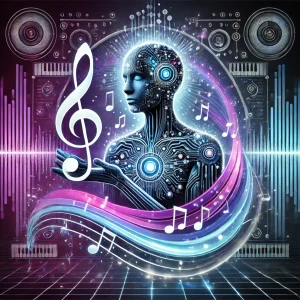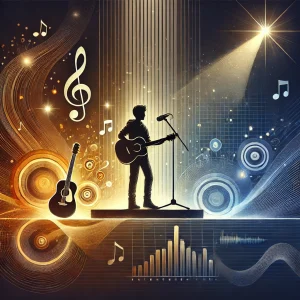In the ever-evolving landscape of the music industry, traditional gatekeepers once held the keys to success, determining which artists would rise to stardom and which would remain in obscurity. However, with the dawn of the digital age and the proliferation of online platforms, these gatekeepers are finding their grip loosening as a new market paradigm emerges—one where emerging musicians have more opportunities than ever before to showcase their talent and connect directly with audiences.
Gone are the days when success in the music industry relied solely on securing a record deal with a major label or receiving airplay on mainstream radio stations. Today, artists have access to a plethora of digital platforms—from streaming services like Spotify and Apple Music to social media platforms like TikTok and Instagram—that allow them to distribute their music, engage with fans, and build their brand without the need for traditional intermediaries.
One of the most significant ways in which the new market dynamics have disrupted the music industry is by democratizing access to audiences. In the past, artists often had to rely on gatekeepers such as record labels, radio programmers, and music critics to reach listeners. These gatekeepers wielded immense power, determining which artists received exposure and which were relegated to the sidelines. However, with the rise of digital platforms, artists now have the ability to bypass these gatekeepers entirely and connect directly with fans. Whether through social media marketing, viral content, or playlist placements on streaming services, artists now have more avenues than ever before to share their music with the world.
Moreover, the emergence of streaming services has fundamentally changed the way music is consumed, further disrupting traditional market dynamics. With streaming, listeners have access to an unprecedented catalog of music from around the world, allowing them to discover new artists and genres with ease. This democratization of access has empowered emerging musicians to find their audience and cultivate a fan base on their terms, without having to conform to the tastes and preferences of traditional gatekeepers.
Additionally, the rise of social media and user-generated content platforms has given artists unprecedented opportunities to engage with fans and build their brand. Platforms like TikTok, Instagram, and YouTube have become invaluable tools for artists to share their music, connect with fans, and showcase their personality and creativity. Through engaging content, behind-the-scenes glimpses, and direct interactions with fans, artists can now forge deeper connections with their audience and cultivate a loyal fan base from the ground up.
In conclusion, the current music market has undergone a seismic shift, with traditional gatekeepers no longer holding the same sway over the industry as they once did. Thanks to the rise of digital platforms, streaming services, and social media, emerging musicians now have more opportunities than ever before to share their music, connect with fans, and build their careers on their own terms. While the landscape may continue to evolve, one thing is clear: the era of gatekeepers dictating who is next in music is rapidly coming to an end, ushering in a new era of empowerment and opportunity for artists everywhere.



